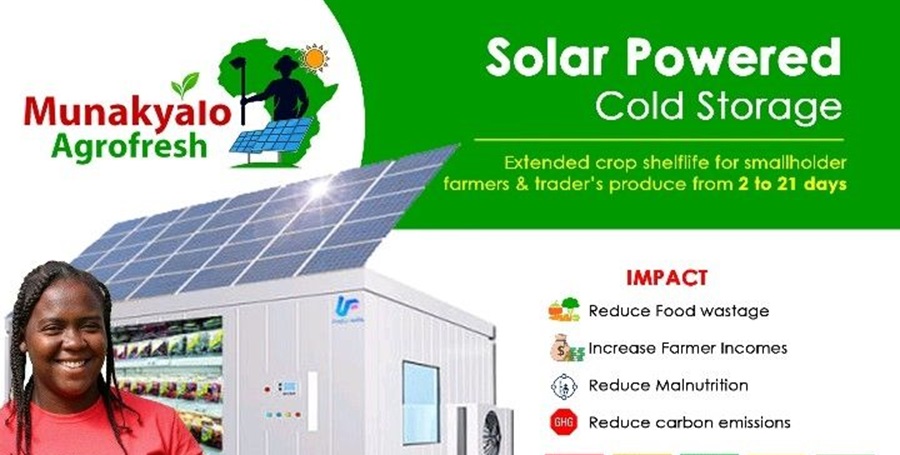Ugandan startup Munakyalo Agrofresh is helping farmers avoid post-harvest losses by preventing food spoilage via solar-powered cold storage and preservation stations.
Formed in May 2021 in the Kyaka 2 refugee settlement in western Uganda, Munakyalo Agrofresh provides its Cold Hives to smallholder farmers and market vendors, extending the shelf life of perishable produce from the usual two days to three weeks.
In Sub-Saharan Africa, 40 per cent of all crops grown are wasted due to post-harvest losses, 94 per cent of which result from inefficient supply chains. This means smallholder farmers lose up to 25 per cent of their income at every harvest.
“Smallholder farmers can’t afford modern cold storage facilities and resort to using polythene bags which easily contaminate their produce, resulting in food wastage,” founder Ronald Lwasa told Disrupt Africa.
“As unrefrigerated perishable produce, such as tomatoes, avocadoes, and mangoes, starts to spoil in the heat, intermediary produce brokers exploit farmers’ urgent need to sell, often offering subpar prices for crops.”
Munakyalo Agrofresh’s Cold Hives overcome these problems, and the startup has also solved for the affordability issue by operating a “pay as you store” business model.
“Our customers pay only US$0.40 per crate of perishable produce stored in the Cold Hive per day, making cooling very affordable. Also, the Cold Hives are installed in farmer communities to increase accessibility and usage by the farmers. Being solar-powered enables us to reach the rural areas and to provide 24/7 cold storage,” Lwasa said.
Boostrapped to date, Munakyalo Agrofresh was one of 10 startups selected for the latest ASIP accelerator programme run by Startupbootcamp AfriTech. This banked it US$18,000 in funding, and Lwasa said the startup is currently raising US$500,000 in investment to help it scale.
So far, it has constructed four Cold Hives, with 3,525 paying customers having stored 12,000 tonnes of food to date. Should it be successful in raising funding, Lwasa said it would set up an additional 30 Cold Hives, and in doing so mobilise more than 20,000 smallholder farmers and 1,000 market vendors.
“Our challenge at the moment is to raise the required funding to scale our technology and service throughout our targeted markets,” he said, adding that the company has plans to expand across Sub-Saharan Africa. “We need more visibility to extend our impact and service in Sub-Saharan Africa.”


